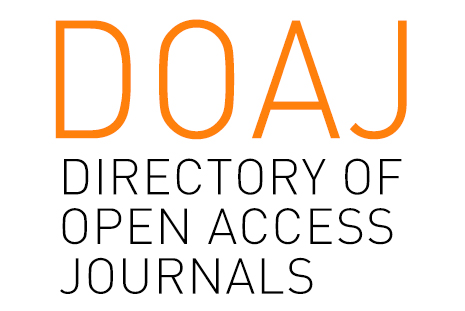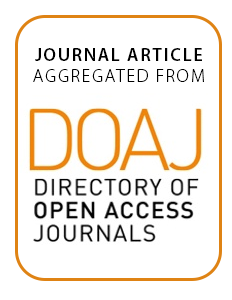Location
The Directory of Open Access Journals was launched in 2003 at Lund University, Sweden, with 300 open access journals and today contains ca. 10000 open access journals covering all areas of science, technology, medicine, social science and humanities.
DOAJ is a membership organisation and membership is available in 3 main categories: Publisher, Ordinary Member and Sponsor. A DOAJ Membership is a clear statement of intent and proves a commitment to quality, peer-reviewed open access. DOAJ is co-author to the Principles of Transparency and Best Practice in Scholarly Publishing (Principles) and DOAJ members are expected to follow these principles as a condition of membership. DOAJ reserves the right to reject applications for membership, or revoke membership if a member or sponsor is found to contravene the Principles. Read more about membership here.
DOAJ is a community-curated list of open access journals and aims to be the starting point for all information searches for quality, peer reviewed open access material. To assist libraries and indexers keep their lists up-to-date, we make public a list of journals that have been accepted into or removed from DOAJ but we will not discuss specific details of an application with anyone apart from the applicant. Neither will we discuss individual publishers or applications with members of the public unless we believe that, by doing so, we will be making a positive contribution to the open access community.
DOAJ publishes Information for Publishers on this site to help Publishers adhere to the Principles and to assist them in completing an application. DOAJ also publishes a list of FAQs relevant to all members of the publishing community, particularly libraries and authors. All information on this site is available to both members and non-members.
Aims & Scope
The aim of the DOAJ is to increase the visibility and ease of use of open access scientific and scholarly journals, thereby promoting their increased usage and impact. The DOAJ aims to be comprehensive and cover all open access scientific and scholarly journals that use a quality control system to guarantee the content. In short, the DOAJ aims to be the one-stop shop for users of open access journals.
Members:
Resources
Displaying 81 - 85 of 783TRENDS OF LAND SYSTEM IN UKRAINE
The organization of land use in different countries is characterized by a variety of land system types, those proved their effectiveness in certain countries, but not are necessarily as effective in others. The objective factors that led to the emergence of various models of the land system, include socio-economic, historical, ethnic, cultural, natural and other features of different countries and peoples that inhabit them.
“Da realidade ao sonho”: uma tentativa de planejamento participativo do parcelamento do solo para a Ecoagrovila Renascer desenvolvido pelo EMAU/CASAS/FAU/UnB
Resumo
THE VALUE AND ROLE OF LAND MANAGEMENT AT THE LOCAL LEVEL IN THE DEVELOPMENT OF LOCAL COMMUNITIES LAND
Planning of land use by land - is an integral part of the management of land use, which provides a mechanism by which decisions are coordinated among various local, regional and national authorities, and helps implement social responsibilities of public authorities in the use and protection of land and other natural resources.
El área urbana funcional de Madrid (1991-2011) Metodología y resultados de una propuesta de delimitación y caracterización multicriterio
Resumen
Spatio-temporal analysis and simulation pattern of land use/cover changes, case study: Naghadeh, Iran
As a result of the growing impacts on global environments, it has become important for land use planners to extract, detect, monitor and predict land use/cover changes (LUCCs). The monitoring of LUCCs within a certain time period and predicting future trends of temporal and spatial changes are absolutely necessary. The aim of this research was to analyze and monitor LUCCs in Naghadeh County, Iran over a time span of 27 years and predict the future trend of changes during the period of 2014–2041.


